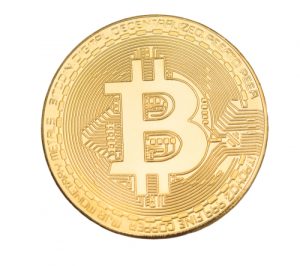M-Pesa is a mobile payments service that was launched in 2007 by Kenyan operator Safaricom and Vodafone. Around 1/3 of Kenya’s population use the service as a means to transfer small amounts of money to other people and merchants via their phone number.
This form of payment is so popular due to ease of use. It runs on a SIM card feature within selected phones that uses an operator menu to perform transactions, which make the overall process simple and direct. There is also a complete network of agents that accept M-Pesa payments that are not actually connected to banks as a means to credit your account.

They can be bought and sold for regular currency at a variety of exchanges available online and in person and are transferred between users using appropriate software. This therefore allows users to settle international deals and transactions without having to deal with exchange rates and bank charges.
Due to M-Pesa being operated only in Kenya, and Bitcoins being the perfect solution for international transfer of currency, Kipochi (a web service launched by programmer Pelle Braendgaard), seems like the ideal way for Kenyans to utilize the power of Bitcoins. However, obtaining Bitcoins is a difficult process and often requires sending funds via wire transfer to virtual currency exchanges in order to purchase them. To counter this, Kipochi has taken several steps to make Bitcoin purchases using M-Pesa as easy and stress-free as possible:
- When a user wishes to buy bitcoins, Kipochi’s servers place an order with a local Bitcoin exchange; the local Bitcoin exchange then sends the Bitcoins to Kipochi.
- When the users account is credited with Bitcoins, they are sent an SMS with this notification.
- Kipochi maps a user’s phone number to a 34-character Bitcoin address, which is essential for recieving the currency.
- Users on the Kipochi network are able to send Bitcoins between each other using just their phone number, allowing high ease of use.
- Bitcoin transaction keys are securely stored on Kipochi servers.
The only downside to this service with Kipochi is that M-Pesa only allows low value transactions, and therefore Kipochi deals with much smaller denominations of Bitcoins that may not appeal to large Bitcoin users.
Up to this point, Kipochi has only been a web service, however developers are currently working on an operator menu within cellphones to further increase ease of use.
Overall, the integration of Bitcoins into M-Pesa will allow many of Kenya’s international transfer customers to deal with transferring currency in and out of Kenya much easier than previously thought possible. According to Kenya’s central bank, around $99 million per month is transferred back home; so with the introduction of a Bitcoin transfer service like Kipochi, users will be able to save money by avoiding costly bank or wire transfer fees.
Author
Eran Feinstein is the founder of 3G Direct Pay Limited. 3G provides global e-commerce and online payments solutions for the travel and related industries He is a leading authority in the fields of e-commerce, travel and payments, having acquired extensive experience from various parts of the world.
